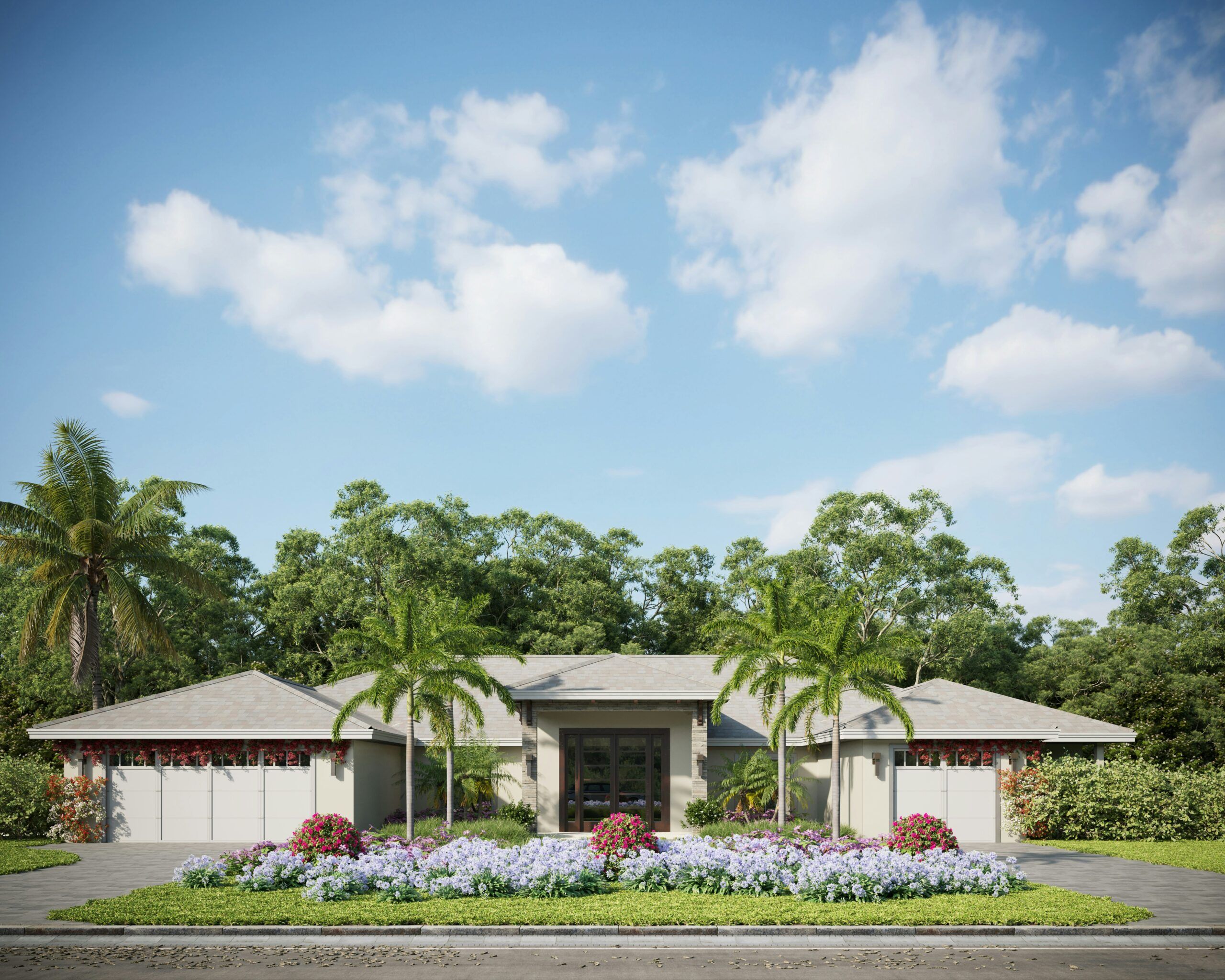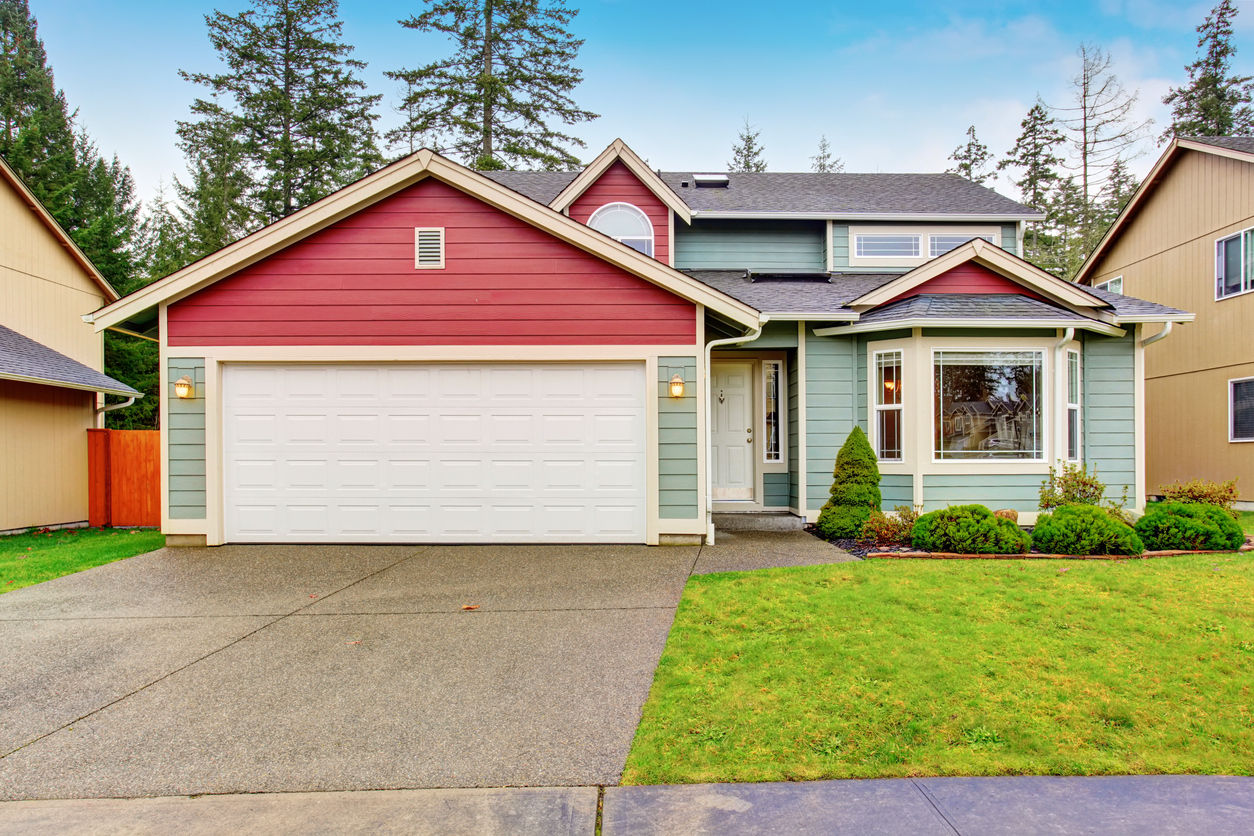Pros and Cons of Buying an Old House
>>Find an Expert Real Estate Agent<<
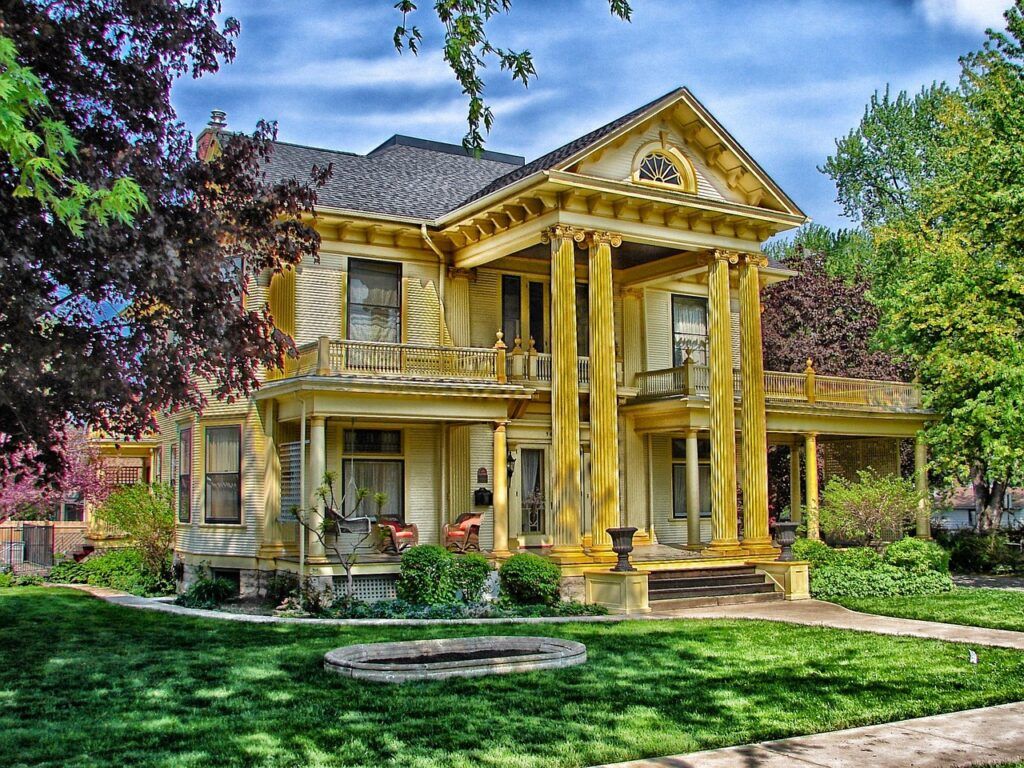
Buyers have two options when searching for a home: they can purchase a new construction property or a previously owned house that is older. While many buyers prefer new builds because they are move-in ready, other buyers are drawn to buying an old house. From historic homes with deep character to a home that’s loved and a couple of decades old, many home buyers are attracted to previously owned homes
There is no singular answer to which type of house is best – it all comes down to what you want as a buyer. Here are the pros and cons of buying an old house if you are considering exploring pre-owned properties.
Why Buyers Are Drawn to Historic Homes
There are several reasons why buyers consider old houses when they enter the real estate market. These homes often offer unique charm and character, which is harder to find in newer builds. If the home is in a designated historic district, it might have unparalleled access to downtown or a connection to a community of people who also love historic homes.
Older neighborhoods are also more established, with mature landscaping and large trees that provide shade (and a reprieve from high electric bills in the summer months). If the neighborhood was built before car ownership was common, it might be more walkable than newer areas in the city.
Additionally, some homeowners find that historic homes have a higher level of craftsmanship than newer properties. These historic houses have already stood the test of time. However, buyers still need to check the building materials in each house for themselves. Just because a house is old doesn’t mean it’s in good condition.
Finally, some buyers simply want a story tied to their home. They love how their old house is tied to the Victorian era or reflects Colonial design styles. Knowing their home was around during the Civil War or when women received the right to vote is a point of pride for them. It connects them to the history of their community.
The Pros of Buying an Old House
There are several benefits of buying an old home in your real estate search, whether you want mature landscaping or neighborhood charm. Here are the most significant advantages to choosing these properties, both as a buyer now and a seller in the future.
“As an owner of a 225-year-old farmhouse, the pros are endless charm, history, and architecture that is simply wonderful. The craftsmanship of that time period will never be replaced, and quality is hands down simply wonderful,” says Kathleen Long, an agent in Brandon, Florida. “The cons are to save your dollars, because you will have to pay for custom work.”
1. Architectural Character and Craftsmanship
Old houses often have unique details that are hard to find in modern homes. For example, your house might have a laundry chute that drops clothes from the second story to the first or an old dumbwaiter that still functions.
It could also have specialized built-in functions that helped families before modern appliances. These uncommon architectural details can make living there fun while allowing you to show off the features to your guests.
Beyond the unique features, many historic homes are made with solid materials that were built to last. Buyers are less likely to worry about structural issues of a house that has a solid foundation which has lasted for centuries. Craftsman homes, for example, are known for their hand-crafted woodwork with quality materials and careful designs.
2. Larger Lots and Established Neighborhoods
Buying an older house may give you access to a larger yard, which is invaluable to some parents (and dog parents). Buyers appreciate the extra space between neighbors, with room to play, relax outside, and start a garden. Studies show that modern homes are built on increasingly smaller lots, reducing privacy and space.
Older lots are also more likely to come with large trees that have decades (if not centuries) to grow. This shade can reduce utility costs by blocking the sun throughout the day.
Not all historic homes are built on large lots. Some older communities might consist of smaller houses placed next to each other in the heart of a city. Buyers who want easy access to downtown or a historic community feel might be drawn to these properties. Because cities expand over time, many historic homes are found in great locations. Newer builds were developed later and might be farther into the suburbs.
3. Lower Initial Price (Sometimes)
Older homes may list at a lower price per square foot compared to newer properties, but this isn’t always the case. Some older homes are actually more expensive because of their unique designs and desirable neighborhoods. Several factors contribute to home value, and two similar homes in the same neighborhood might have vastly different sale prices.
“Competition might be lower because of the stigma behind buying an old home, and what can potentially come up in a home inspection,” says Andy Sabella at Addison Real Estate in Arlington, New Jersey. “However, there is a chance it will be more aggressively priced, so you could get a deal.”
Talk to your real estate agent to learn about average home prices in specific areas, particularly in older neighborhoods. You can also ask them about renovation incentives and programs to preserve historic homes. For example, energy-efficient upgrades can improve the value of the home and reduce utility bills without disrupting the structure of the home.
4. Historical Value & Charm
Countless buyers are drawn to older properties because of their architectural character. They are eager to preserve the community’s history and live inside a piece of it. The opportunity to live in a historic home outweighs any potential drawbacks to these buyers, even if the maintenance costs and requirements are a bit higher.
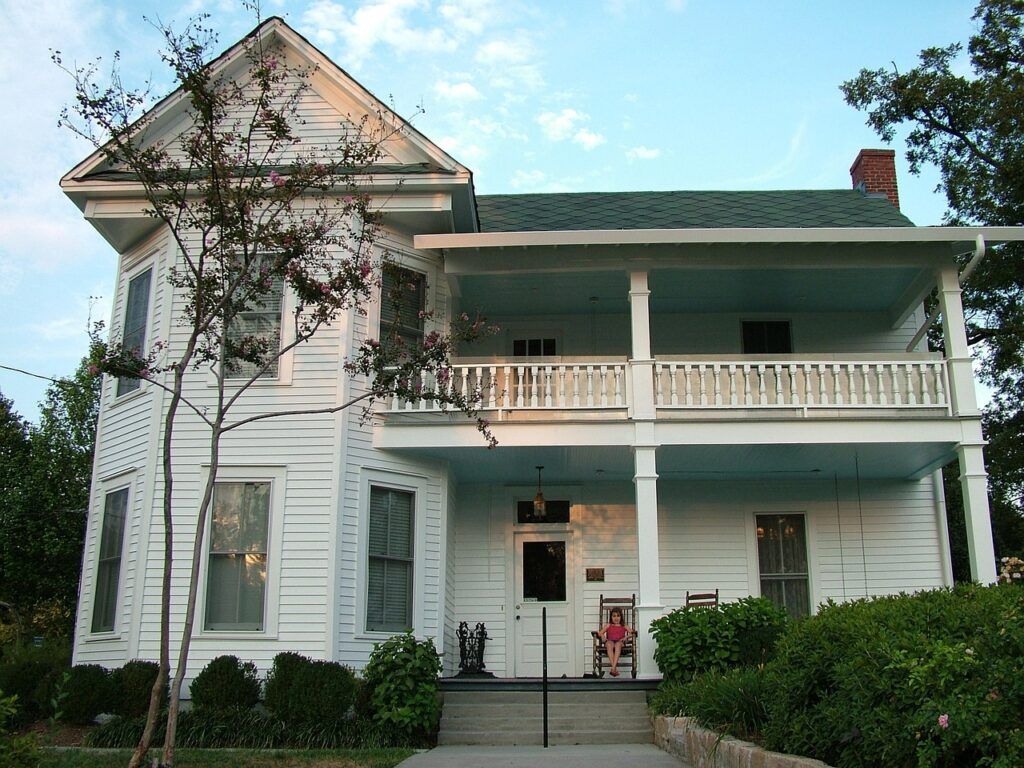
The Cons of Buying an Old House
Despite the significant advantages of choosing historic properties, there are also some disadvantages of old houses. While these houses stand the test of time, they can be harder to repair and difficult to live in at times. Here are some potential problems to be aware of.
1. Higher Maintenance and Repair Costs
Older properties might not be ideal for budget-conscious buyers. These houses can have higher repair costs because the issues are more complex or because the historic nature of the home creates barriers to how systems can be repaired.
For example, the house may have an outdated wiring system that needs to be replaced to keep up with fire codes. While the wiring was modern when it was installed, it has worn out and become dated over the following decades.
Some homeowners may need to work with contractors who specialize in historic properties, which means their repairs will be more expensive than if they owned a new house. Knowing the maintenance costs for old homes can prepare you for the responsibility of moving into a historic neighborhood.
2. Energy Inefficiency
Modern home design is energy efficient and will insulate properties while maintaining ideal humidity levels. Builders a century ago did not have access to the materials, technology, and processes of today. This means that old houses might have trouble with temperature control, which can affect utility costs.
For example, older houses built before HVAC systems were common wouldn’t have ductwork. Buyers either need to rely on window units or mini-split systems. A house with poor insulation or historic windows might leak cold air outside in the summer, driving up electric costs.
Buyers need to decide if they are okay with a less efficient home or if they are ready to take on energy efficient upgrades. Even something like installing an HVAC system could come with other challenges, like updating electrical systems to keep up with the new levels of power demanded by the home.
3. Outdated Layouts and Features
The priorities of home buyers and builders have changed over the years, and it might be hard to find old houses that meet your lifestyle needs. For example, older houses tend to have smaller closets, but 97% of buyers say they value closet space over attic and basement storage space. Historic homes also tend to have smaller and fewer bathrooms.
It’s up to buyers to decide whether they can live with these interiors or if they want to update the properties once they move in. Some people want to preserve the charm, while others want a historic exterior and a modern interior with smart technology and other amenities.
4. Insurance and Appraisal Challenges
Older homes can be more complex or more expensive to insure because they have a higher value to the town or city.
Understanding the ideal price and cost to replace the home goes deeper than reporting square footage and covers how the house contributes to the community’s history. If a historic home is destroyed or damaged beyond repair, it’s unlikely the owner wants to replace it with a modern design, and some well-established neighborhoods won’t allow it.
Home appraisals can also be harder with historic homes because their value is more than their size and amenities. The location and cultural contribution of the property can contribute to its final estimated value.
“Older homes often have character and charm you can’t replicate—but they may come with costly repairs or outdated systems,” says Mike Saladino, a Realtor at Keller Williams ONEChicago. “A thorough inspection is your best protection.”
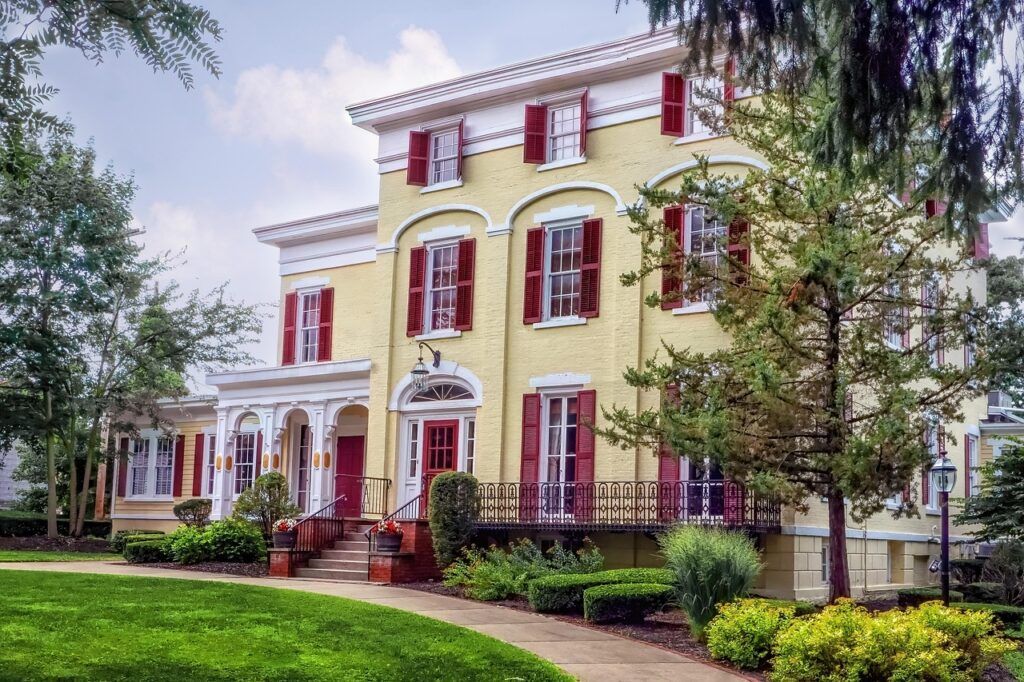
Renovating an Old Home: What to Expect
If you decide to buy a historic home instead of a new house, pay close attention to the home inspection. This can give you an idea of what needs to be updated and replaced once you move in. The home inspection will also help you negotiate a final sale price if there are serious issues (like lead paint) that need to be addressed. Here are a few things to be prepared for as you move forward with renovations.
- Set a clear budget and plan for unexpected issues: Request estimates from multiple contractors and look for professionals who are familiar with historic properties. Know that unexpected issues can arise with any project and can increase the total project costs.
- Be patient with permitting: Some communities have different building codes and permitting processes for renovating old homes. There might need to be multiple inspections and special permits to complete before you can start the project.
- Know when to hire a professional: While you can save money working on projects yourself, there are times it’s easier, safer, and more efficient to hire experts. Structural issues, roofing needs, and electrical systems should always be handled by licensed contractors.
- Consider the return on investment (ROI): Some home improvements can benefit future owners (like energy-efficient upgrades) while other projects are unique to your lifestyle needs. Consider which projects would add the most long-term value to your home.
“Old homes can be money pits upfront — updates aren’t cheap,” says Julie Wyss at Keller Williams Bay Area Estates in Los Gatos, California. “But if you plan smart, renovate right, and play the long game, it’s usually worth it and a great way to get your foot in the door.”
Furthermore, consider whether the cost of repairs is worth it compared to the purchase price. A house might be more work than you realize, even though it has historic charm. Have a clear idea of what kind of home you are buying, whether it is a well-maintained historic home or a serious fixer-upper.
Old House vs. New House: How to Decide
It’s understandable to be on the fence between buying a new house or a historic home. Weighing the pros and cons of buying an old house is a good start, but the final decision depends on your desire to live in specific neighborhoods and comfort levels with historic home maintenance costs. Here’s how to make the right choice for your needs.
- Understand the finances: evaluate your estimated mortgage payment, insurance costs, utility bills, and expected repair costs. Consider if you have the funds to address unexpected issues.
- Review your lifestyle factors: list what is essential to you in a house, which could range from large closets to good school systems. Decide if the historic neighborhoods and houses in your area match these criteria.
- Consider emotional appeal vs. practicality: While many people dream about living in older homes, these properties simply aren’t practical. Set your emotions aside and know what is right for your needs.
There is also a happy medium between buying new houses and historic homes. You might find an older house in your area that has charm but doesn’t come with the burden of being listed on the National Register of Historic Places.
How a Real Estate Agent Can Help You Buy an Old House
Your real estate agent is an essential support person in the purchase process, especially if you are buying a historic home. They can identify red flags during home tours, connect buyers with trusted inspectors and contractors who work on old homes, and provide clear estimates on the true cost of ownership beyond purchase price. Some real estate agents specialize in historic homes and neighborhoods with old houses. They love helping people buy and sell these unique properties.
You don’t have to be a real estate expert to buy an older home. You simply need a trusted expert to answer your questions and highlight any potential opportunities and issues in the houses you tour.
Is an Old House Right for You?
While many buyers want the ease of new houses, other people prefer older homes because of their charm and location. Historic houses tend to have larger lots, mature landscaping, and unique neighborhoods. New houses come with fewer repair requirements and modern systems that are efficient and easier to maintain.
Consider how much time and effort you are willing to put into your historic home. Small repairs might become bigger issues because of older design styles. However, if you find a well-maintained home or are willing to invest in your property, you could be happier in the long run.
If you are thinking about buying an older home, connect with a top agent through FastExpert. A trusted Realtor can help you find a property full of character and a clear understanding of any repairs or upgrades it needs. Try FastExpert today and meet with real estate professionals who meet your needs.


